Fun Fact: Tulips didn’t actually come from the Netherlands but Türkiye!
8 Reasons Why Muslim-Friendly Tunisia Should Be Next On Your Bucket List
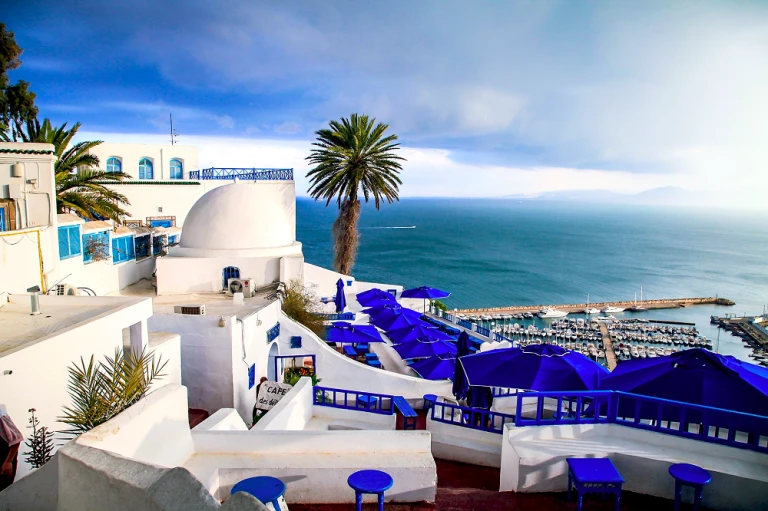
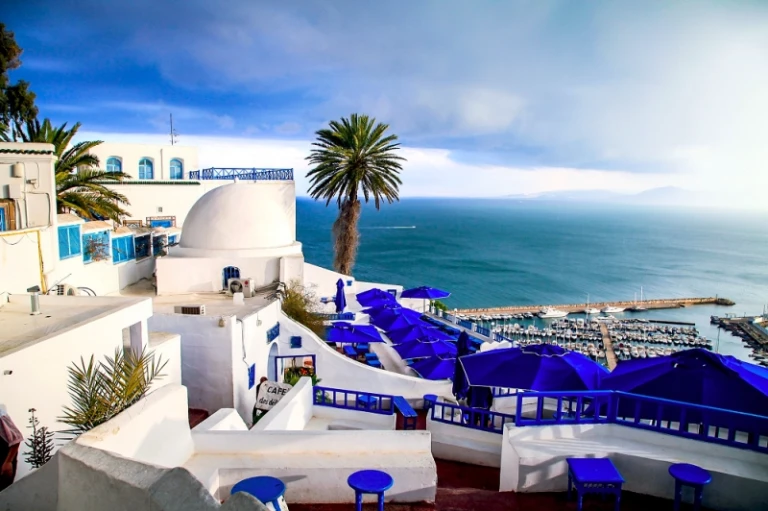
Morocco, Jordan and Egypt have recently been in the spotlight as emerging destinations for Muslim travellers, notably those originating from Southeast Asia. These countries are no doubt intriguing for different reasons, but there is no other land quite like Tunisia — a fascinating land bursting with souks and spices amidst dry desert dunes.
From breathtaking beaches along the country’s thousand-kilometre Mediterranean coastline to ancient ruins and the vast Sahara, Tunisia draws visitors from all corners of the globe. Sandwiched between Morocco and Algeria, this gem is a place for sun worshippers, families, romantics, culture vultures, history buffs and basically anyone looking for a memorable adventure!
Still uncertain about what exactly Tunisia has to offer? Let these eight reasons reiterate why you should scramble to explore North Africa’s precious jewel.
1. Bask in glorious sunshine on some of North Africa’s most idyllic beaches
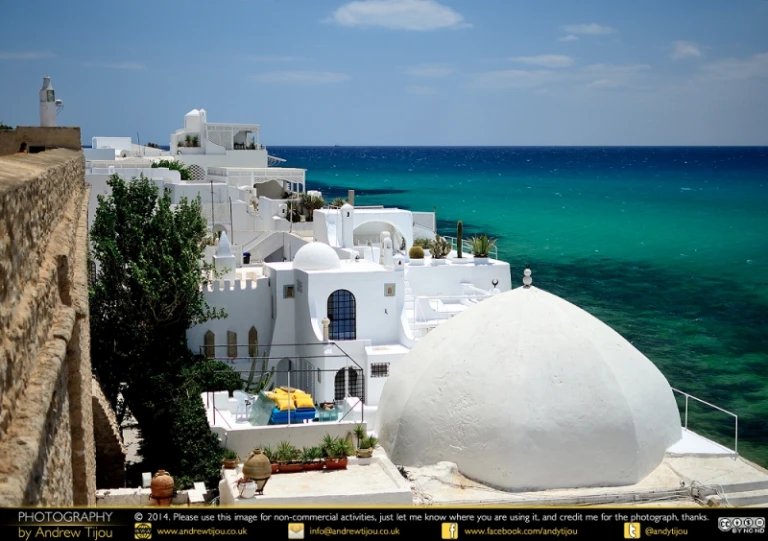
Who doesn’t love a fun-filled beach vacay? Well, Tunisia is not home to just a handful of gorgeous Mediterranean beaches. In fact, you will be spoilt for choice as the coastline literally spans more than a thousand kilometres! You don’t need to have a solid Math background to figure that this translates to ample of shoreline with fine, powdery sand for you to while your time away.
Worried about the weather? With Tunisia’s strategic position overlooking the sparkling Mediterranean Sea, the climate is pleasant for visits all year round. For a seaside holiday, the most ideal period to visit is between September and October when the sea is still warm (so your teeth won’t be chattering during your dip).
Lapped by crystalline waters and perfumed by citrus groves, Hammamet makes for an apt beach destination in Tunisia. Also known as Tunisia’s version of St-Tropez, the beaches here are expansive and quiet, allowing you to revel in that much-needed respite you’ve longed for. If you’re an adrenaline junkie, partake in a dizzying array of water sports from water skiing to windsurfing and have a splashing good time!
Hammamet is also known to be full of ancient remnants of the past (read: remains of a Roman settlement). History buffs can certainly delight in a good day of exploration too if beaches aren’t quite your cup of tea.
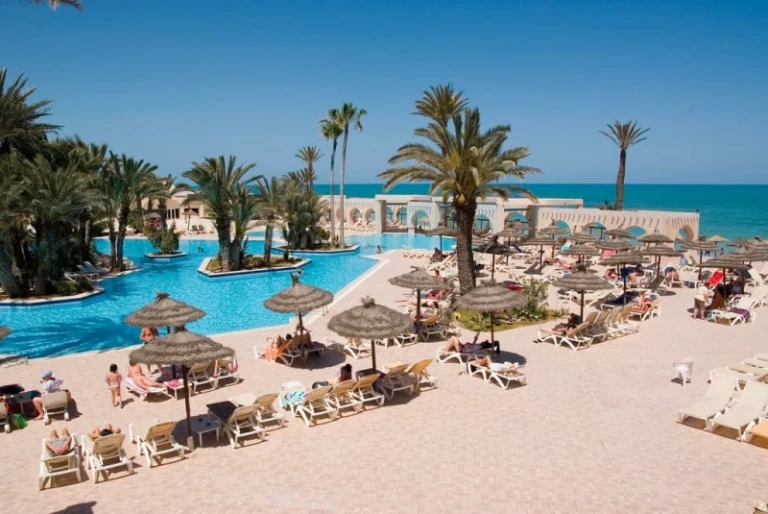
Aside from Hammamet, the lovely island of Djerba is also home to exotic beaches namely Sidi Mahrez and Seguia. These spots are great for swimming, with the waters seemingly like a piece of Caribbean heaven.
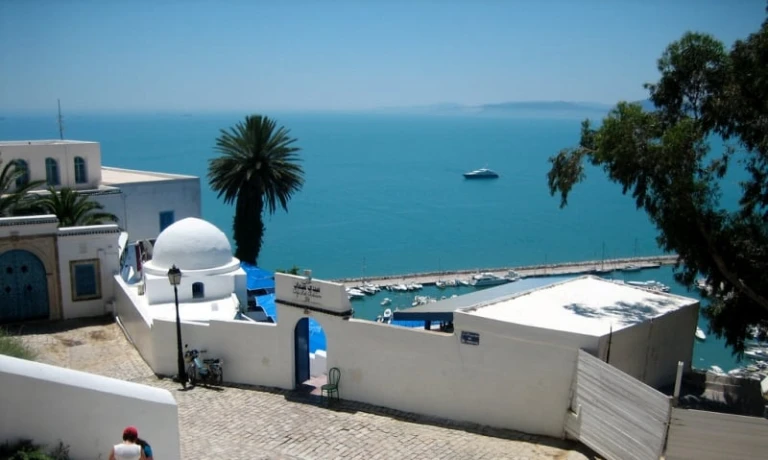
Forget the renowned Santorini, Tunisia’s Sidi Bou Said can certainly rival most Greek islands with its jaw-dropping landscapes all decked in hues of white and blue. This cliff-top village looks straight out of a painting (read: Instagram-worthy) with its whitewashed houses overlooking the calm, turquoise waters.
From Tunisia’s capital, you can easily access this coastal gem by car or train. Make this day trip happen and wander along the narrow alleyways, countless souvenir stores and bustling marketplaces!
2. Marvel at magnificent Islamic architecture
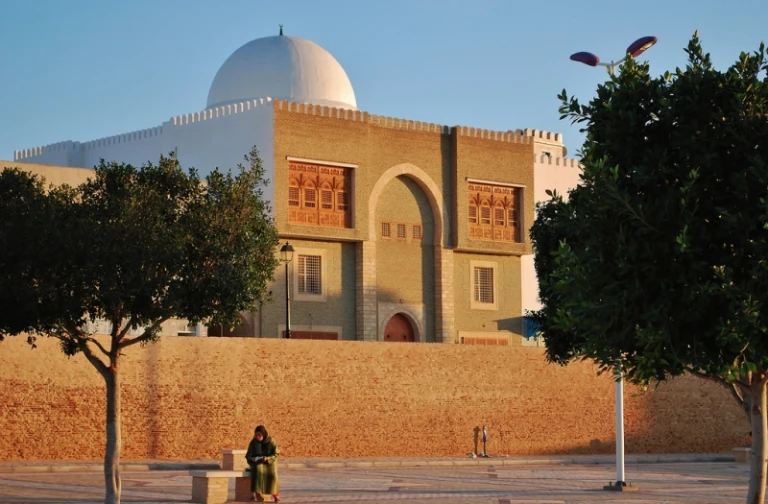
Kairouan, also spelt Qayrawan, is one of Tunisia’s most important cities especially in the Islamic world. Just a few steps behind Mecca, Madina and Jerusalem, Kairouan is considered to be an important pilgrimage destination for Muslims. Fun fact: According to popular belief, seven trips to Kairouan is equivalent to one hajj to Mecca.
The city was founded in 670 AD and during the time of its grand splendour, between the ninth and eleventh centuries AD, Kairouan was deemed as one of the greatest centres of Islamic civilisation. The rising Islamic importance of Kairouan prompted the building of several impressive monuments, several of which have been well preserved till today!
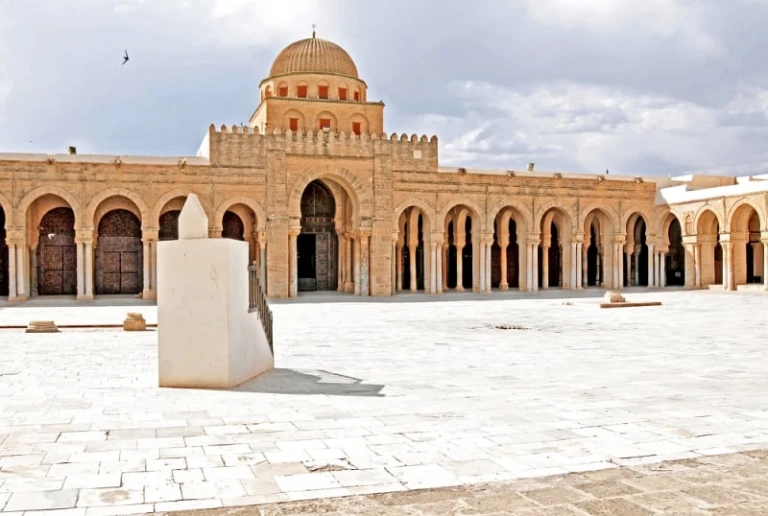
The awe-inspiring examples here will certainly leave you mesmerised. The Great Mosque of Kairouan illustrates the magnificence of Islamic architecture that also makes Kairouan popular with visiting tourists. From the ninth century AD onwards, the Great Mosque of Kairouan was both a place of worship and a centre for teaching Islamic sciences. Fun fact: Historically, this mosque was the first mosque built in the first Muslim town in the West!
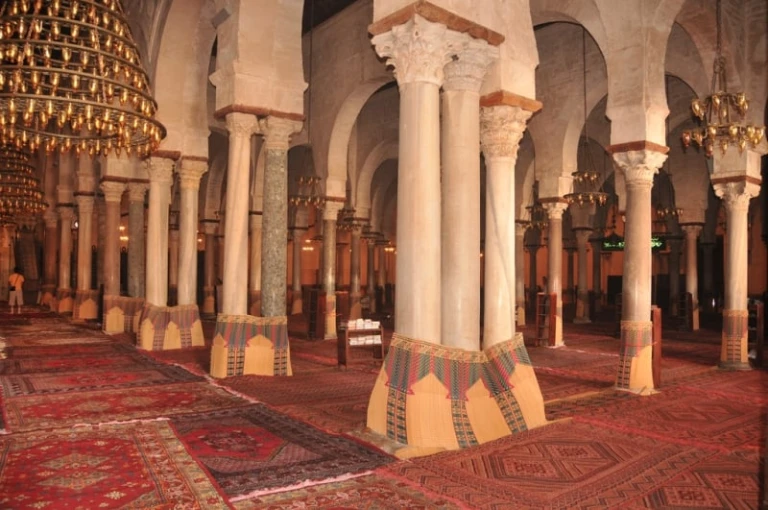
Check out the interiors! The grand marble columns, hanging chandeliers and intricate rugs exude a warm and peaceful vibe. As you wander the grounds, bear in mind that you’re actually treading over a millennium of history.
3. Sample delectable Tunisian cuisine
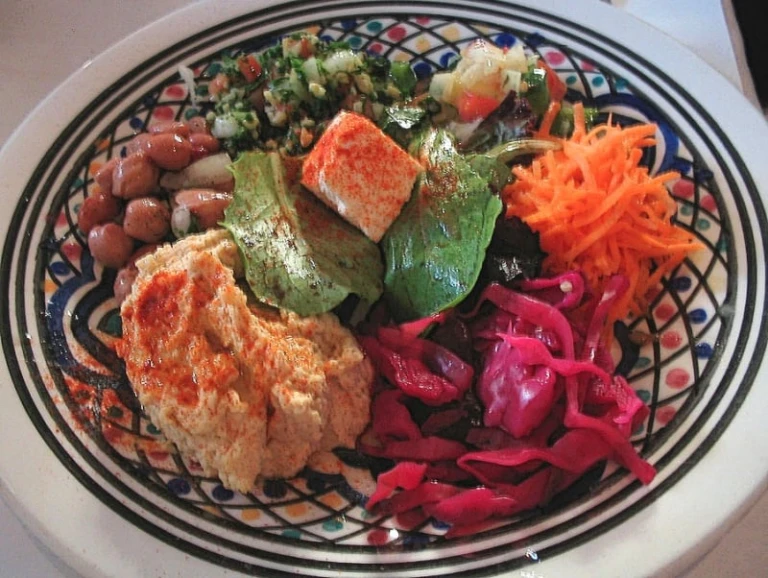
Foodies, this one’s for you! Tunisia might be the smallest country in North Africa but packs a big punch when it comes to the local food scene. Brimming with a diverse blend of flavours and spice for that much-needed kick, Tunisian cuisine is something you must sample. Centuries of foreign occupation resulted in a medley of flavours from French, Roman and Ottoman influences. In essence, the culinary confluence implies that there is something for everyone!
As a Muslim traveller, you won’t have difficulties sussing out halal food since almost 99% of Tunisia’s population are Muslim adherents. This is definitely good news because whenever those hunger pangs suddenly set in, you’re that much closer to a tantalising meal just around the corner of the street.
Not too sure what authentic dishes to look out for? Just to get you started, lablabi soup (cumin-flavoured chickpeas soup), grilled vegetables in harissa (spicy chilli paste), brik (thin deep-fried pastry with a filling), egg shakshuka (tomato herb sauce), Merguez sausages (spicy lamb sausages) and Tunisian tagine (crustless quiche) are all must-try items. Oh yes, don’t forget Tunisia’s national dish (and staple food) too: couscous. Be sure to check them off one lunch at a time.
4. Embark on an enriching voyage to Tunisia’s colourful and captivating past
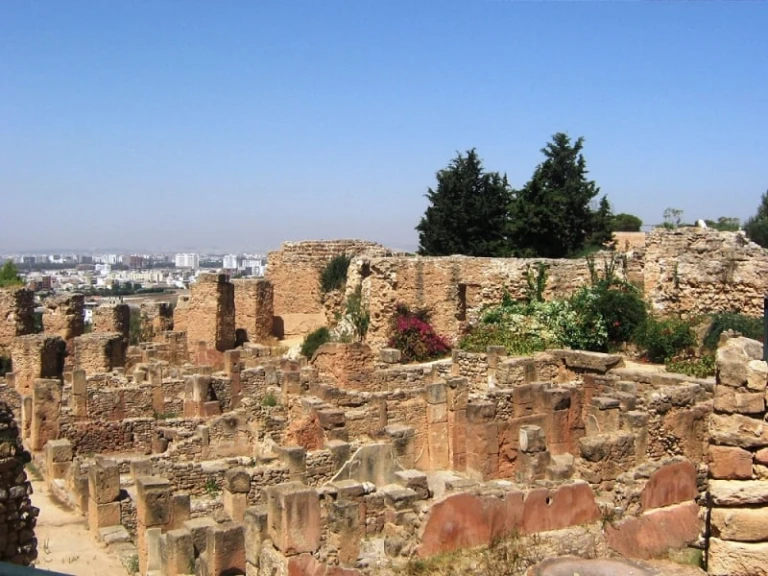
The historical role of Tunisia is evident in the wide number of archaeological sites. The Roman ruins at Carthage are just one example. The scanty remains of the once mighty Phoenician city of Carthage lie scattered and is a noteworthy site for you to take in the atmosphere of a bygone era.
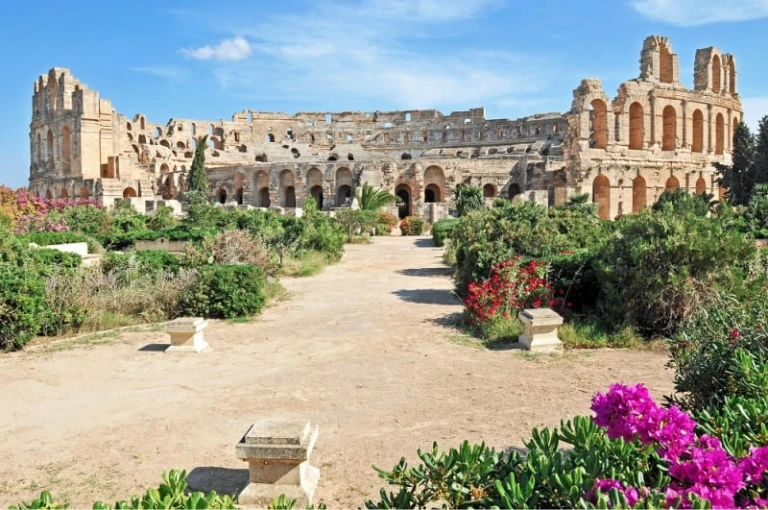
El Jem is home to the gladiatorial arena of Tunisia: The Amphitheatre of El Jem. This monument illustrates the grandeur and extent of Imperial Rome, not forgetting its sheer scale of being able to accommodate up to 35,000 spectators. If it looks very familiar to you, you might recognize it from the Oscar-winning film, Gladiator.
Modelled after The Coliseum in Rome, this free-standing amphitheatre bears outstanding witness to Roman architecture. Helmed as a UNESCO World Heritage Site, The Amphitheatre of El Jem automatically warrants a visit (and numerous photos). Don’t stop Rome-ing, Tunisia brims with other notable landmarks such as Dougga, The Bardo Museum, Medina of Tunis and Bulla Ragia!
5. Saunter around souks that are too lovely to miss
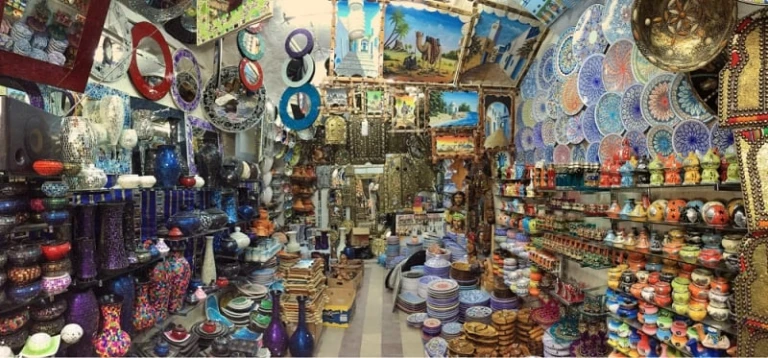
Holidays are meant to be therapeutic and retail therapy can certainly contribute to that. Shopping in Tunisia is an experience in itself and do remember that as you navigate around the labyrinthine of shops, bargaining is de rigueur. Till date, traditional markets play an important role in Tunisian life and usually remain open until 6-7pm. Main tourist alleys like Rue Jamaa Zitouna in Tunis’ main souk might see longer opening hours to cater to larger crowds.
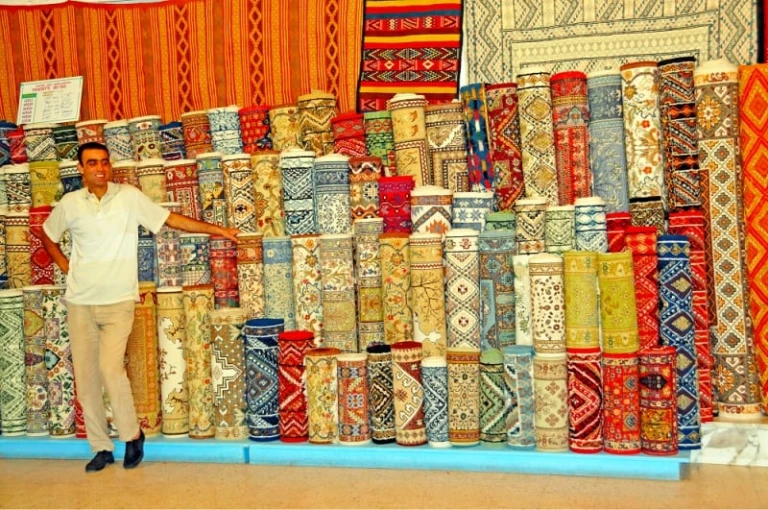
Each Tunisian city and medina boasts its own specialties. Handcrafted ceramics are abundant at the Tozeur market’s stalls, while the Nabeul market is renowned for its gorgeous Tunisian pottery. In Kairouan, you can expect to find high-quality carpets.
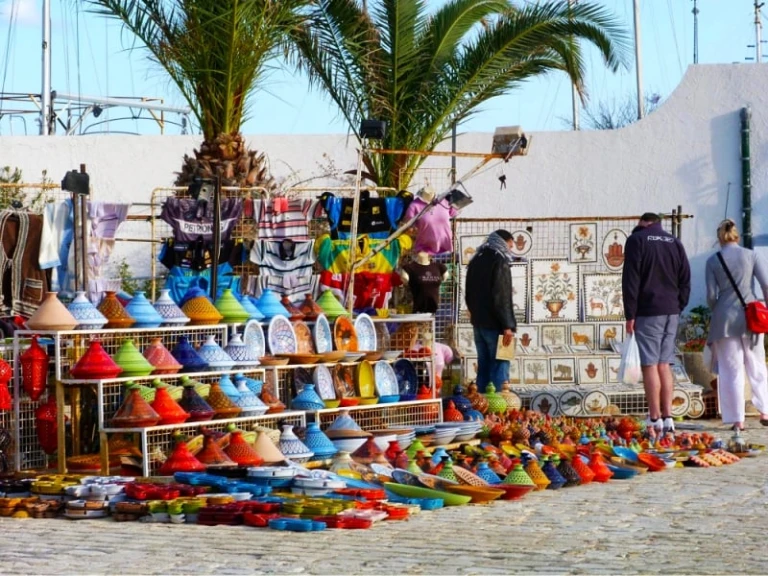
If you are unsure of what to purchase, popular souvenirs include delicately-decorated ceramic bowls, handcrafted babouches (leather slippers), djellabas (ankle-length robes), Tunisian dates, Sahara Desert roses, olivewood sculptures and jasmine perfume. Forget big brands and support local businesses!
Note: Most shops close on Fridays understandably due to the communal Friday prayers.
6. Be left awestruck by the mighty Sahara Desert
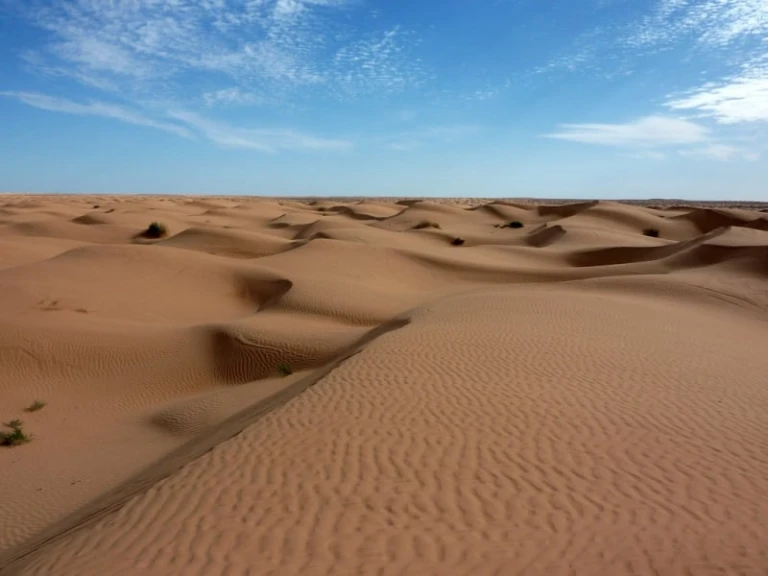
There’s no better way to experience a country than by witnessing how the locals go about their daily nomadic lives. A visit to the Sahara Desert, via Douz, is an opportune chance for you to immerse yourself in the Berber way of life. Fun fact: The size of the Sahara Desert is approximately comparable to the territory of the United States of America!
Besides ticking off another bucket list to-do, exploring the Sahara Desert honestly feels like stepping into an otherworldly realm as it is continental in its scale. It would be extra spectacular if you witness the lemony African sunset bound to invoke a lot of “oohs” and “aahs”. Whether you choose to embark on a quick 4×4 tour or spend the night in a typical Bedouin tent beneath the clearest show of glittering stars, a visit to Tunisia will be incomplete without incorporating this quintessential experience into your itinerary.
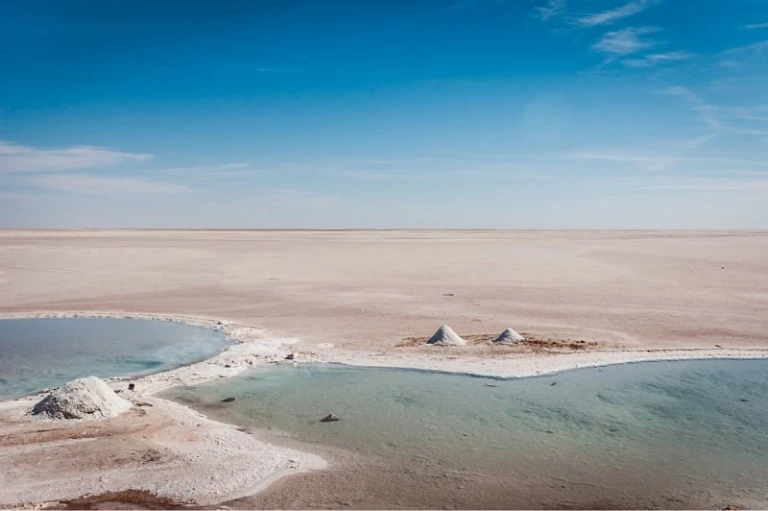
After conquering your desert expedition, don’t forget to pay a visit to these shimmering salt lakes situated at Chott el Djerid, southwest of Tunisia. This will be an experience like no other as you marvel at massive plots of salt pans that blur the lines between land and the horizon. This is undeniably a photographer’s dream backdrop.
7. Star Wars fans, you will find certain areas VERY familiar
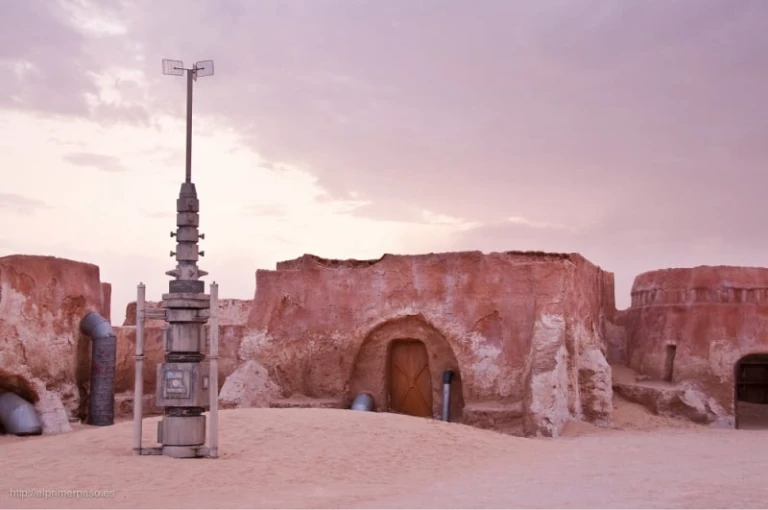
If Tunisia’s desert landscapes look like they’re from another planet, well it turns out that a galaxy far away from home might be closer than you could possibly imagine. Calling all Star Wars fans, Tunisia is the place to be to relive certain magical moments from the phenomenal cult science-fiction movie series. Four of the Star Wars films were partially shot in Tunisia and some sets are still in place, albeit left to the elements.
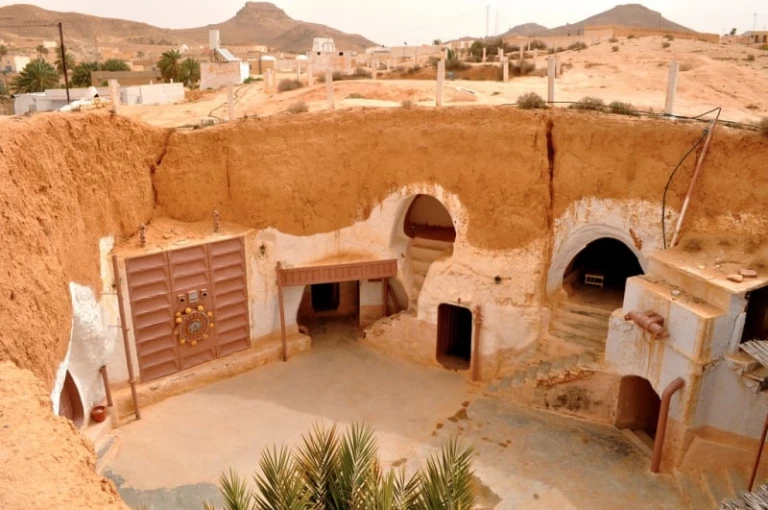
Matmata is heralded as the gateway to all things Star Wars-related. Filmmaker George Lucas adapted the Tunisian town of Tataouine to represent the Skywalkers’ home, better known as Tatooine. Remember those cloaks with pointed hoods donned by most of the characters? They resemble traditional Berber djellabas! If you’re a true-blue fan, why not stay in Luke’s childhood home at Hotel Sidi Driss!
The cinematic beauty of these areas simply cannot go unnoticed. Remember to pack your lightsabers (and bring a spare camera battery) for this trip. These abandoned Star Wars film sets will leave you very enchanted (and excited).
8. Experience traditional Tunisian dars
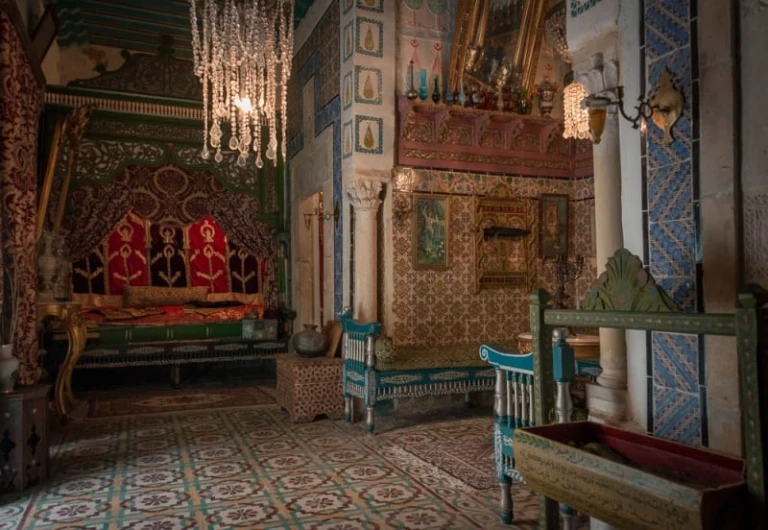
If Morocco is home to grandiose riads that put Airbnb units to shame, Tunisia welcomes you with their own camera-ready version known as a “dar”. These “boutique hotels in traditional townhouses” are furnished to a T and boast colourful geometric tiles, vibrantly-painted walls and feature a quaint courtyard.
You can find these houses in the town’s medina and they certainly help to preserve Tunisia’s cultural heritage. Forget boring and mainstream hotels and put up at one of these beautiful accommodation options during your stay.
Tunisia is not your typical destination as it melds UNESCO world heritage sites and ancient ruins with the modernity of a cosmopolitan country. From the soothing sound of the adhan (Muslim call for prayer) and the plethora of halal food choices to the postcard-worthy landscapes and fun-filled excursions, this vacation is one to remember.
Also read: 19 Muslim-Friendly Cities to Visit in 2019
Published at
About Author
Nur Sofia
Subscribe our Newsletter
Get our weekly tips and travel news!
Recommended Articles
10 Best Places for Muslim Travellers to See Tulip Festivals in 2025 Top 10 Popular Muslim-Friendly Destinations to Visit in 2025 Our schedules are packed, buddies!
10 Hidden Gems in Osaka Perfect For Muslim Travellers Food, culture, neon lights, history, friendly locals — OSAKA!
10 Hidden Gems of Sabah, Malaysia Besides mountains, Sabah has so much to offer its visitors from vast clear blue waters to rare native wildlife. You will never be bored when you visit this hidden gem of Malaysia.
10 Muslim Footballers That Will Inspire You And Your Goals HalalZilla consults the great archives of football to handpick our top Muslim players who’ve ever laced a pair of boots in the big leagues – especially those you didn’t know were Muslim!
Latest Articles
Halal Honeymoon in Sarawak: 10 Romantic Muslim-Friendly Activities Romance, rainforests, and halal adventures await in Sarawak!
5 Muslim-Friendly Theme Parks in Johor Bahru (JB) for Singaporeans to Visit Consider that weekend family trip to JB locked in!
Halal Food Guide: 6 Muslim-Friendly Restaurants at Universal Studios Japan You can savour the halal butter beer here!
MySawasdee Train: A Scenic, Muslim-Friendly Journey From Penang to Hat Yai to Launch in Q3 2025 MySawasdee train is set to launch as regular service In Q3 of 2025!
Why Is The Floor of Masjid al-Haram Always Cool – Even in Scorching Heat? Did you know, Thassos marble is so white that it reflects sunlight easily!

